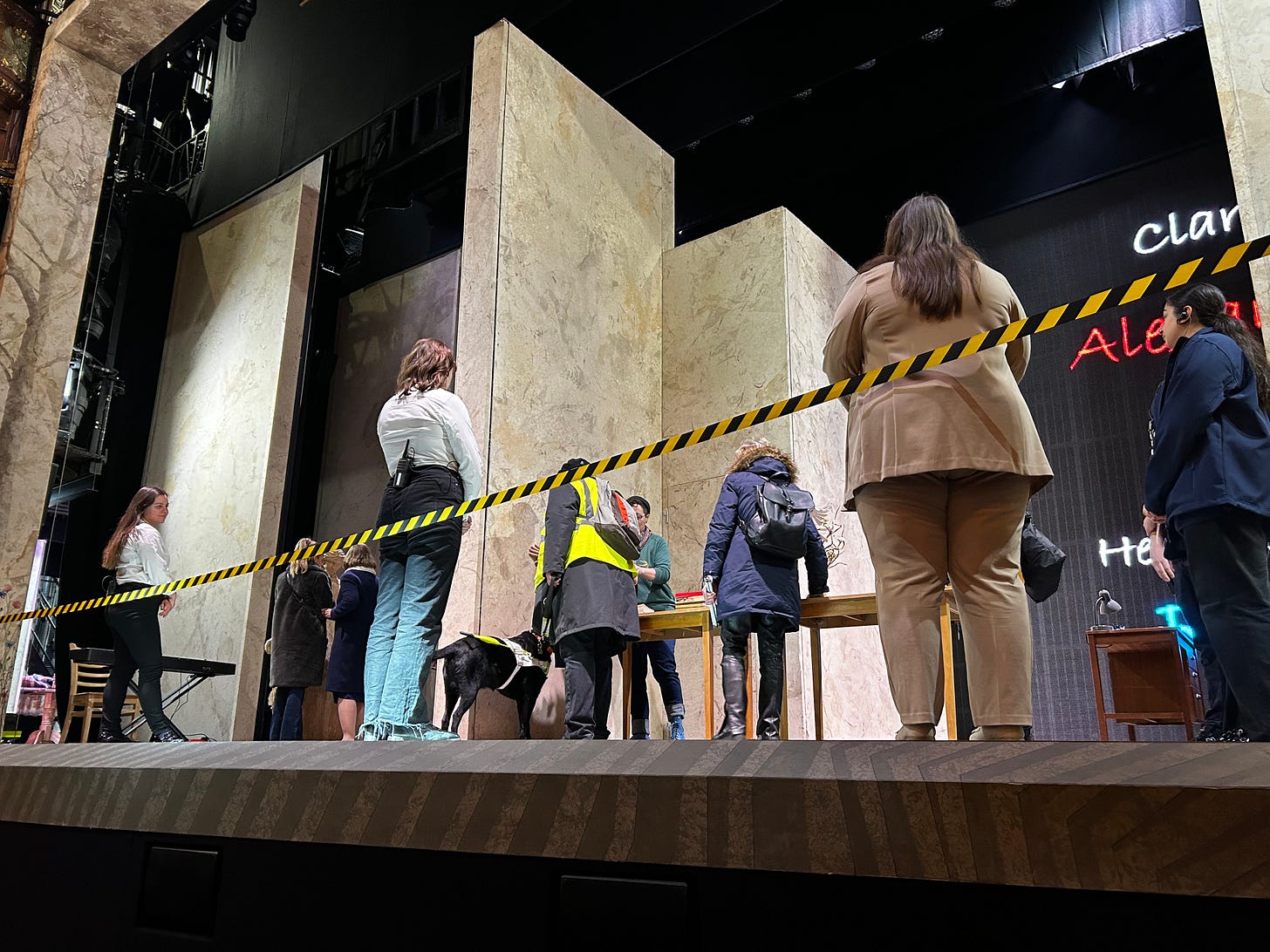Theatre time travel of accessibility - The Accessible Link #18
The Apollo Theatre's inclusive performance.
Hello everyone,
Do you sometimes wish you could time travel? I learned to be careful what you wish for. It's not easy to be a time traveller.
My partner and I went to the musical "The Time Traveller's Wife" at the Apollo Theatre near Piccadilly. The theatre was built in 1901 and is a Grade II listed building (for all non-British readers, that means it is recognised and protected for its architectural or historic interest). Honestly, I prefer 2024 over 1901. The accessibility of 1901 without the mitigations of today is not for me.
But I was impressed by how they made this old theatre accessible for wheelchair users, I assume not long ago. The stage is in the basement over steep steps, but they had a platform lift above an emergency exit staircase. It was exactly as wide as the staircase itself. The platform was small, only 100x80cm; that was all the space they had, but it wasn't a problem for my wheelchair. The platform could also take powerchairs (if small enough) up to 300kg. Another guest used it with a mobility scooter.
The theatre had a wheelchair space. They remove chairs as needed. It wasn't perfect because the old theatre floor is steep. They tried their best by giving me a board under my front wheels so I could sit comfortably and not on an uneven surface for nearly three hours.
My partner, who is blind, went on a touch tour before the show. He could touch the setup and paraphernalia used during the show. The show had audio description. The story of "The Time Traveller's Wife" is quite complex, even when you can see the stage. The time and stage design change a lot during the play. My partner said they did a great job with the audio description.
The staff were very passionate about making everything accessible. They guided blind people to the touch tour and ensured the stage was safe. There were more staff than disabled people present, and everyone was highly motivated to make this a great experience. The theatre wasn't perfect, but everyone wanted to create the best experience possible. We knew about the small platform lift before we arrived; they even printed the size of the stairlift on the wheelchair user tickets, and it wasn't a problem with my wheelchair.
The whole front-of-house crew was great; they were well-trained and passionate. It shows the right people can sometimes compensate for an imperfect environment.
Some interesting links
Air Canada isn't happy that their regulator wants them to improve accessibility for powerchair users. Not a good look. Again.
Disability Thinking Weekday asked, "Which "disability" terminology do you prefer?". It's good to see the majority is not for "person first" language.
Majorca or Menorca? Assistance put disabled passengers on the wrong plane.
Something to watch
Since I was diagnosed with a heart condition, I monitor my heart rate during the day. And to my surprise, there is nothing that pushes my heart rate higher without exercising than going up and down train ramps. You could see on my heart rate chart when I boarded a train. It's not the physical task. I have a wheelchair add-on, my Triride, that pulls me up the ramp, but I am nervous about whether the staff member uses the right ramp and secures it properly or if I have a failed assist and nobody shows up, and my heart reacts to that. It seems I'm not the only one who finds train ramps a bit scary.
Something to read
Companies that lead in disability inclusion outperform peers financially, reveals new research. The report identifies that, over the last five years, the business case for hiring disabled people has become even stronger. Specifically, companies that have led on key disability inclusion criteria over that time saw 1.6 times more revenue, 2.6 times more net income and two times more economic profit than other companies. Further, leaders are more likely to outperform industry peers in productivity by 25 per cent.
Some final words
Progress is impossible without change, and those who cannot change their minds cannot change anything. (George Bernard Shaw)The Accessible Link is a reader-supported publication. So, if you like what you’re reading, consider to become a paid subscriber or
Who is writing this newsletter?
I’m Christiane Link, and I improve the customer experience in aviation, transport, and travel. I worked as a journalist for over two decades and travelled extensively for business and leisure. I’m a wheelchair user. If you want to read more from me, follow me on LinkedIn, Twitter, Bluesky or Mastodon. You can also reply to this email if you want to contact me
.







